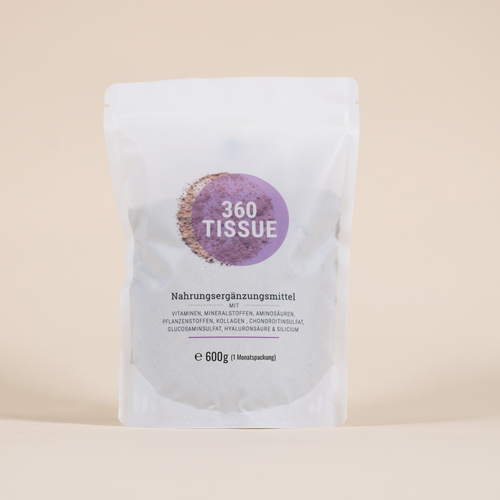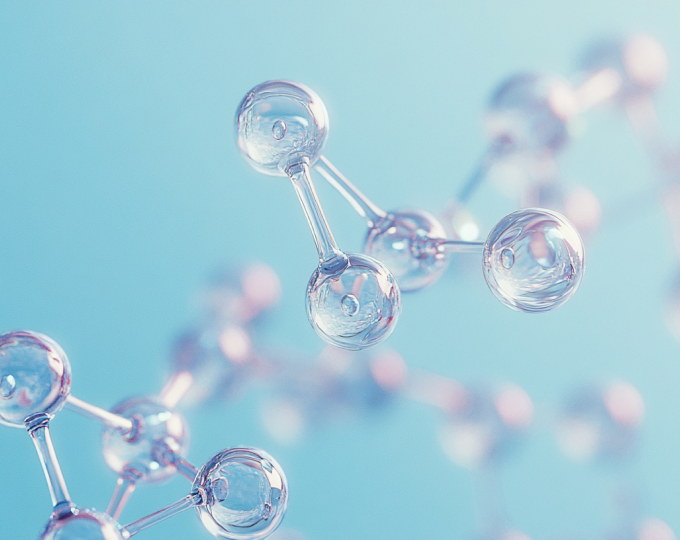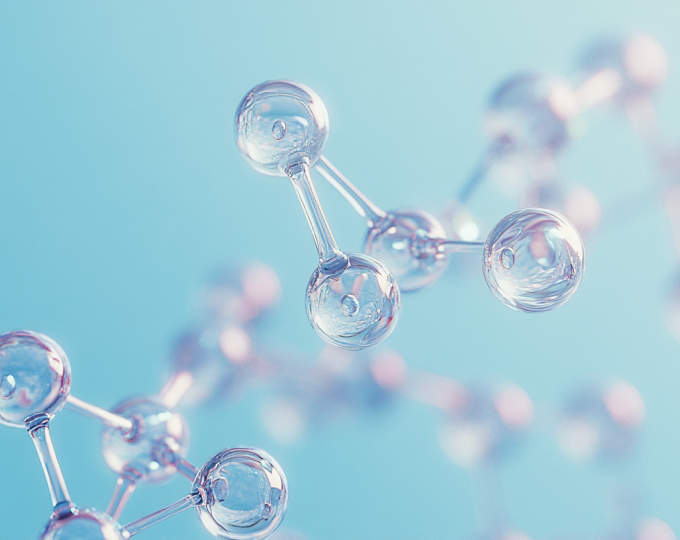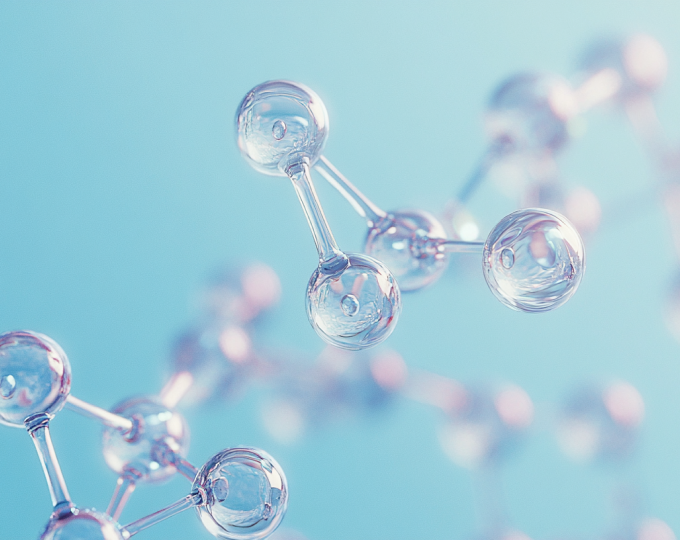Themen dieses Blogartikels:
What is Lysine?
Lysine is an essential amino acid, which means that it must be obtained from food. Lysine is positively charged and is also an alkaline amino acid.
What are the functions of Lysine?
Lysine is a proteinogenic amino acid, i.e. it is found in proteins and is needed for their synthesis. Lysine is also one of the two purely ketogenic amino acids1. These are amino acids that are only used for ketone body synthesis, but not for energy production in the citrate cycle. The advantage of ketone body synthesis is that they can be produced in the liver during prolonged fasting (even 16:8 interval fasting) and then transported, preferably to tissues such as the muscles and, after a changeover, also to the brain2. But that's not all. Lysine is also an amino acid that is popular in the context of post-translational amino acids. It is methylated, acetylated and hydroxylated. Lysine is particularly abundant in certain proteins of the cell nucleus, the histones. Here, methylation and acetylation lead to the switching on or off of areas on the DNA. Lysine is therefore relevant for gene regulation and epigenetic processes3. Hydroxylation to hydroxylysine is particularly important for the vitamin C-dependent formation of collagen, an important structural protein of connective tissue, bone and cartilage as well as skin and tendons. Collagen is important for the strength and elasticity of connective tissue.
What makes Lysine unique?
Lysine is unique because it is found in large quantities in histones and is used here for acetylation and methylation of proteins. Acetylation and methylation are crucial for the regulation of gene activity.
How much Lysine do you need per day?
The German Nutrition Society (DGE) has not yet issued a recommendation for the daily intake of amino acids such as lysine. However, it is assumed that an adult needs 38 mg of L-lysine per kilogram of body weight per day. So if you weigh 70 kg, for example, you need 2.7 g of L-lysine per day5. Children and adolescents have an increased requirement due to their growth: infants from 0 to 12 months need 103 mg L-lysine per kg, nursery children between 1 and 5 years 58 mg per kg and schoolchildren from 6 to 12 years 44 mg per kg. Good to know: L-lysine is the form of this amino acid that your body can utilize.
When do you need Lysine most?
Lysine is important for athletes, for injuries to bones and joints and for balanced collagen synthesis4. Together with vitamin C, proline and glycine, it can support collagen maintenance and formation.
How does an Lysine deficiency develop and how does it manifest itself?
As the lysine requirement can be easily covered by food, deficiency states are rather rare. Vegetarians and vegans have an increased risk of this, as L-lysine is not found in plant-based foods in the same quantities as in animal-based foods. Possible signs of a deficiency are skin rashes, mood swings, a weakened immune system and reduced wound healing. Women may also experience menstrual cycle fluctuations and children may experience growth disorders.6
What happens if there is an overdose of Lysine?
If you take this amino acid in the form of food supplements, a maximum daily dose of 3 g of L-lysine is generally recommended7. If you consume too much over a longer period of time, you may develop health problems such as blood sugar fluctuations, kidney dysfunction and/or blood clotting disorders.8
Which foods are particularly high in Lysine?
As an essential amino acid, lysine should be supplied in sufficient quantities through food. Beef, chicken breast, pumpkin seeds, tofu, peas and nuts contain lysine, but as with other amino acids, it is only protein-bound.
This dictionary entry is based on carefully researched sources:
Bibliography & Sources
- https://www. Spektrum.de/lexikon/biologie/ketogene-aminosaeuren/35930
- https://www.aerzteblatt.de/nachrichten/105572/Intervallfasten-senkt-in-zwei-Studien-Koerperweight-und-Metabolic-risks
- https://pubmed.ncbi.nlm.nih.gov/23195220/
- https://www.netdoktor.de/medizine/lysin/
- https://marktapotheke-bredstedt.de/gesundheitsbibliothek/index/l-lysin/
- https://www.vitalstoff-lexikon.de/Aminosaeuren/Lysin/Mangelsymptome
- https://marktapotheke-bredstedt.de/gesundheitsbibliothek/index/l-lysin/
- https://www.netdoktor.de/medizine/lysin/




















